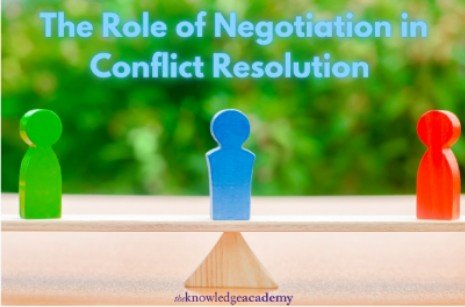Conflict is as common as morning coffee, whether in corporate boardrooms or on playgrounds. However, the most important thing is not the conflicts themselves but how we fix them. Now enter negotiations, the unsung hero of peacemaking. In this blog, we’ll explore the Importance of Negotiation Skills and their role in fostering effective communication. Knowing and developing Communication Skills can help turn problems into personal development and connection opportunities. Let us explore the art and science of negotiation, learning how it allows us to negotiate differences and identify win-win solutions gracefully.
Understanding Negotiation
Let us first cover the foundations. Negotiating is a life skill we use more often than we would admit, not just a word used in corporate meetings. Fundamentally, negotiation is a conversation between two or more people trying to create a mutually pleasing arrangement. Negotiating is about discovering a win-win solution, unlike a dispute in which winning is the aim. See it more as a collaborative effort towards a happy medium than as a brutal tug-of-war.
The Anatomy of Conflict
We must understand conflict if we are to truly understand why negotiating is so important. Different interests, needs, or ideals create conflicts. They might result from personality conflicts, resource competition, or even misinterpretation. Conflict indicates something must be taken care of. Consider it like your car’s check engine light: unpleasant, sure, but neglecting it might cause more major issues.
Negotiation: The Go-To Superpower
So, how does negotiation swoop in to save the day? Here’s a closer look:
Encouraging Open Communication
Any negotiation revolves mainly around communication. This entails establishing a place where everyone feels free to communicate their needs and worries without regard to criticism. Encouragement of honest communication helps negotiators find the underlying reasons for problems, therefore opening the path for more sensible answers.
Imagine two children vying for one toy. A competent negotiator would first let both children explain why they desire the toy, maybe pointing out that one likes its shape while the other enjoys its colour. You are now more likely to come up with a creative answer, perhaps even learning of two toys that will suit both children.
Building Trust and Relationships
Good negotiating is about creating enduring relationships as much as fixing the pressing problem. Good faith and a goal toward justice help people develop trust. Any decent connection, personal or professional, is based on trust. When done well, negotiation makes everyone feel appreciated and valued, therefore preparing the ground for future, more seamless interactions. Consider it a goodwill savings account; each effective negotiation is a deposit.
Practical Tips for Successful Negotiation
Now, let’s get practical. Here are some tips to become a negotiation ninja:
Listen More Than You Talk
Even though it seems odd, the best negotiators talk less and listen more. Good active listening reveals underlying interests and lets you grasp the other person’s viewpoint. Like a detective, you will be better equipped to solve the riddle the more hints you acquire.
Stay Calm and Collected
While emotions run strong during arguments, composure is essential. Keep your cool and try to gently defuse conflict. Consider yourself as the Zen master of negotiations—unflappable and focused.
Be Prepared
Research before starting a negotiation. Know your own wants and those of the other person and where you could compromise. Being ready helps you be confident and less prone to being surprised.
Find Common Ground
Emphasise commonalities rather than disparities. Defining shared objectives helps change the dynamic from hostile to cooperative. It’s like discovering a song you both enjoy—suddenly, you are on the same team.
Negotiation in Everyday Life
Negotiating is a daily occurrence, not limited to large corporate deals or high-stakes events. Negotiating skills are helpful whether your conversation is about bedtime with your children, sharing housework with a flatmate or bartering for a cheaper price at the market.
The Ripple Effect of Good Negotiation
Learning negotiation helps settle problems and turns them into chances for personal development and closer bonds. People who feel heard and appreciated are more likely to compromise and work together. Good negotiations lead to improved relationships, simplifying further negotiations in a cycle of goodwill.
Thus, don’t hesitate the next time you encounter a dispute. Accept your inner negotiator and see how conflicts become opportunities for a relationship and mutual benefit. A little practice will help you resolve problems and create closer, more trusted bonds over time.
Improve negotiation skills with The Knowledge Academy courses.
